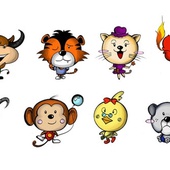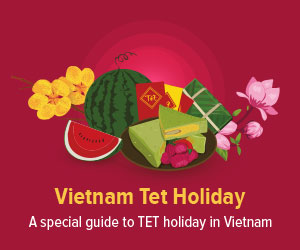Vietnam Country Names
Vietnam's Country Name Through History
From the time the Vietnamese established their first dynasty until today, various titles have been used to refer to the territory where the people have lived. The earliest name was Van Lang, which denoted the initial kingdom in northern Vietnam governed by the Hung King family. This name persisted until 258 B.C., when it was replaced by the title Au Lac, following An Duong Vuong's unification of the Van Lang and the Au Viet tribes into an integrated country that expanded its territory to the Guangxi region.
After the collapse of the Au Lac kingdom, Vietnam was divided into two regions known as Giao Chi and Cuu Chan. However, an interruption in this rule occurred when Ly Bi, a historic national hero, established a dynasty known as Van Xuan, which lasted until it was dismantled in 602 A.D.
In 968 A.D., Dinh Bo Linh reunited the warring factions, and the new kingdom was renamed Dai Co Viet, which translates to "The Great Viet." Unfortunately, this title lasted only 86 years before being succeeded by the Ly Dynasty, which adopted the name Dai Viet, meaning "The Great Viet." This title held the record for the longest period in Vietnamese history, from the commencement of the Ly Dynasty in 1054 until the Nguyen Dynasty in the 1800s.
Throughout this time, there was also a seven-year period during which Vietnam was referred to as Dai Ngu, meaning "Great Peace," under the Ho Dynasty, and another 20 years without a formal title. In 1804, the name Dai Viet was finally replaced with Vietnam, a title that has remained in use until today. The official name of the country now is the Socialist Republic of Vietnam.
What Does Vietnam Mean?
The correct spelling is Viet Nam. "Viet" refers to the people, encompassing the 54 different ethnic groups residing in the country, while "Nam" means South. Hence, Viet Nam signifies the Viet people living in the southern part of the region.
Many individuals worldwide recognize the name Vietnam, as it has appeared frequently in international media coverage over the years. However, public perception often centers around images of conflict in a secluded corner of Southeast Asia, overshadowing the deeper historic and cultural significance of the country, including the meaning of its name.
The name Vietnam was conceived when Emperor Gia Long sought to rename the country to Nam Viet, a combination of names from various regions in Vietnam, including An Nam and Viet Thuong. This eventually evolved into the name Vietnam as we know it today. Numerous interpretations of the name exist, with the most plausible suggesting it reflects both geographical and ethnic elements.
In summary, Vietnam means "the Viets of the South" based on the second interpretation, or it can symbolize the unification of diverse regions throughout Vietnam, in alignment with the first explanation.

11 Horoscopes In The Year Of The Dragon
The dragon year can be a booster-for-all for all other zodiacs.

Vietnam's 5 Most Important Festivals & Travel Tips
Vietnam's cultural richness stands out with a variety of traditional festivals.

Kinh People
Vietnam is known for its cultural diversity with 54 ethnic groups, in which, Kinh or Viet people accounts for nearly 90% of the whole population.






